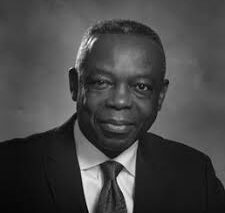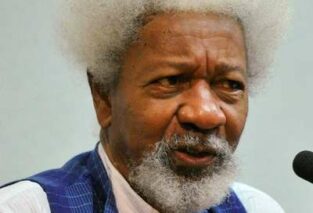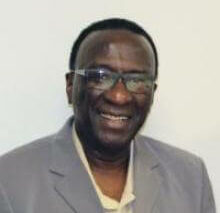Professor Michael Abioseh Porter, was at the time of this interview, the head of English at the Philosophy Department at Drexel University, Philadelphia, Pennsylvania, USA. Born and bred in Sierra Leone, he received a Bachelor of Arts degree in French and English and a Diploma in Education from Fourah Bay College in Freetown, Sierra Leone. He later studied at the University of Alberta in Edmonton, Canada, from where he graduated with a Master of Arts Degree and a Doctorate in Comparative Literature with focus on African literature.
He has, for the past well over twenty years, been teaching comparative literature in various North American universities. He was also the Editor of the North American-based African Literature Association (ALA) Bulletin, renamed JALA–The Journal of the African Literature Association. In the following interview from his home in New Jersey, Professor Porter discusses at length his travels, his teaching experiences and research work into African literatures, and the role of Pidgin in Cameroon literature.
Professor Porter, you’re a well-traveled man and much of that traveling has had to do with African literature. Tell us something about your travels.
I’ve done much research work in African literatures and that has required quite a fair amount of traveling to a number of African countries like Cameroon, Togo, Sierra Leone, Morocco, Egypt and Ghana, just to be close to the source of the literatures I’ve been studying. African literary studies have also taken me to France, Germany, Italy, Belgium and Britain as I search for what can help me to improve my understanding of African literatures and those who produce them.
As a Cameroonian, I’m particularly interested in your research work into Cameroonian literature. Tell us about your trip to Cameroon in the late seventies and your discoveries in the area of creative writing.
My advisor at the time, the now retired Professor Stephen Arnold, who also happens to be one of my best friends, was then working on Anglophone literature in Cameroon. I also became interested in that area and joined him in his trip to Cameroon in the late seventies. Being an Anglophone myself, I felt attracted to his research work and I could draw some sort of parallel with what was then happening in my own native Sierra Leone; especially the use of Pidgin as a language of choice. Pidgin is to Cameroon what Krio is to the masses of my country, Sierra Leone.
What form of literature seems to be best expressed in Pidgin or Krio?
Pidgin is definitely the most popular and the most appreciated medium of communication in the area of theatre and the dramatic arts. So I was naturally attracted to that area of literary expression. I was introduced to a young crop of very dynamic writers, especially theater writers. The most popular name that pops to mind now is Victor Musinga, who was at the head of a very popular drama group in Buea. There were others as well: Jettiman, Jetty Menget, among others, whose preferred medium of expression was either entirely Pidgin, or predominantly Pidgin.
What was the reaction of the public to this form of literary expression?
The reaction varied depending on whether you were dealing with the ordinary masses or with the so-called intellectual elite. We quickly noticed that even though there was quite an effervescence of creative writing in Pidgin, this medium of expression was still largely stigmatised. It was the same story with Krio in Sierra Leone. But then that is the language the masses understand better, but the so-called intellectual elite, either in Cameroon, Nigeria or Sierra Leone, despise it, claiming it is not worth much. But what was truly fascinating was the enthusiasm with which the masses welcomed plays or poetry recitation in Pidgin.
You must’ve had a chance to talk with your academic colleagues in Cameroon at the time about their reaction to literature in Pidgin. What did they give as a reason for their disdain of this form of literary expression?
Some of them said there had over the years developed some kind of hierarchical structure in terms of language usage. At the top of the ladder, you have French, which by sheer number of speakers outranks the others, and then there is English, with Pidgin coming a distant third. There was the mistaken assumption that Pidgin would corrupt the speaker’s correct use of English. Linguistically that is, of course, not true because if you study Pidgin, or any other language, in and of itself and use it the way it is meant to be used, it would be difficult to confuse one with the other. Take the Romance languages of Europe, for example. They are morphologically quite similar but people don’t mix them up simply for that reason. What we have here is simply a kind of superiority complex, if you can excuse that term, European languages have in relation to Pidgin or Krio.
There are signs all over the University of Buea campus warning students against speaking Pidgin, which is said to have a negative effect on their mastery of English. Is that something to worry about?
Not at all. I find such notices senseless. In fact, the people who seemed to have understood the import of Pidgin as a language of mass communication are the missionaries. They quickly realised that language is a great cultural binder and they knew how to exploit it to reach the greater masses of the people. To me, this opposition to the use of Pidgin is nothing short of intellectual snobbery. You and I are now communicating in English, but if we were either in Cameroon or in Sierra Leone, Pidgin or Krio would be the most appropriate means of communication. But to warn people against using the language they master best, doesn’t make sense to me.



